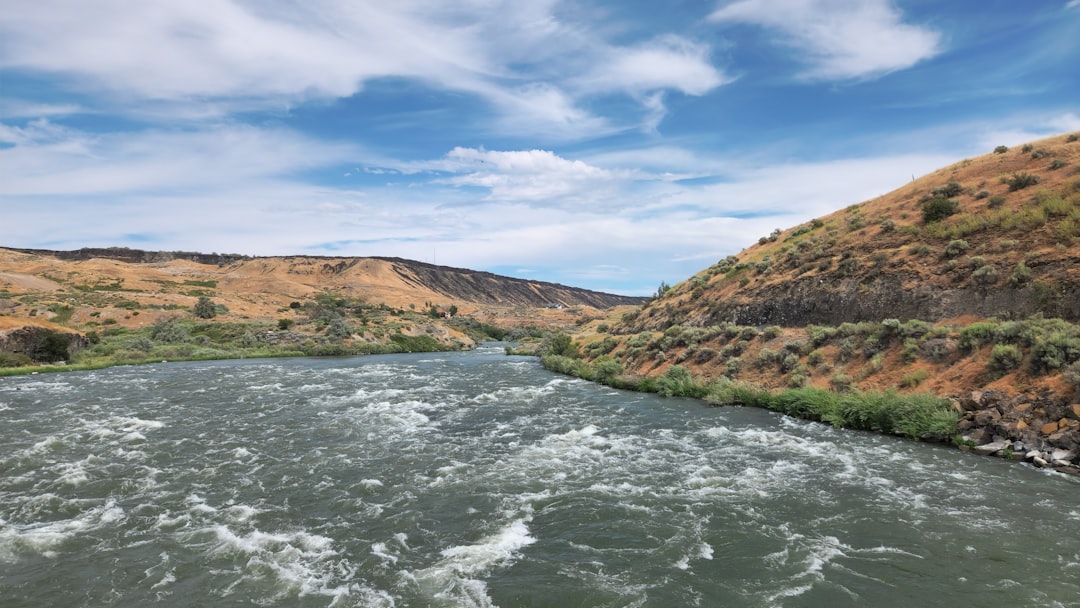Lake Lowell in Nampa, Idaho, a popular recreational spot known for fishing and boating community, is facing an emerging concern – spam calls from fraudulent Idaho law firms targeting boaters. Scammers pose as official representatives, demanding prompt license payments or threatening consequences. Boaters are advised to stay informed, verify requests through official channels, report suspicious calls, and consult consumer protection specialists, such as spam call law firms in Idaho, to protect themselves from deceptive practices related to boating licenses.
“Nampa’s Lake Lowell, a popular destination for boating enthusiasts, has recently been marred by a peculiar and troubling trend—scam calls targeting its thriving community. As Idaho’s scenic lakes attract boaters from far and wide, so do the cunning schemes of unscrupulous individuals. This article delves into the world of these deceptive practices, exploring the rise of scam calls in Idaho, the efforts of local spam call law firms to combat them, and providing essential guidance for Nampa’s Lake Lowell boaters to protect themselves.”
Understanding Lake Lowell and Its Boating Community

Lake Lowell, nestled in Nampa, Idaho, is more than just a picturesque body of water; it’s a vibrant hub for boating enthusiasts and a significant recreational asset for the community. Boating on this scenic lake offers residents and visitors alike an escape from daily life, with tranquil waters surrounded by lush landscapes. The lake is renowned for its excellent fishing opportunities, drawing anglers from far and wide. This peaceful setting also fosters a strong sense of community among boaters, who often gather for events and friendly competitions.
The boating community at Lake Lowell takes pride in maintaining the lake’s cleanliness and safety, adhering to local regulations and Idaho’s boating laws. However, recent spam call scams targeting this close-knit group have caused concern. Some individuals posing as law firms from Idaho have been making unsolicited calls, attempting to lure boaters into unnecessary legal entanglements or charging them with bogus fees related to boating licenses. Such incidents highlight the importance of staying informed and vigilant to protect oneself from deceptive practices.
The Rise of Scam Calls Targeting Boaters in Idaho

In recent years, a concerning trend has emerged in Idaho, as boaters across the state have become targets of scam calls related to boating licenses and regulations. These deceptive practices, often involving spam call law firms, aim to exploit the ignorance or urgency of boaters, preying on their desire for compliance with local laws. The scammers pose as official representatives from various government agencies, demanding immediate payment for outstanding fees or threatening severe consequences if the boaters do not obtain their licenses promptly.
The rise of these scam calls has left many residents concerned, prompting law enforcement and consumer protection agencies to issue warnings. Boaters are advised to exercise caution when receiving such calls, verifying the authenticity of the request through official channels, and never providing personal or financial information without confirmation of the caller’s legitimacy. Idaho’s legal framework provides protections against such fraudulent activities, with strict penalties for those found guilty of making or responding to spam call law firm scams.
How Spam Call Law Firms in Idaho Are Addressing the Issue

In response to the growing issue of scam calls related to boating licenses in Nampa, Idaho, several reputable spam call law firms have taken proactive measures. These legal experts specialize in consumer protection and are dedicated to combating fraudulent activities that target residents across the state. By leveraging advanced technologies and legal expertise, they track down and expose the culprits behind these deceptive schemes.
Idaho’s spam call law firms have established robust systems to receive, analyze, and respond to reports of suspicious calls. They work closely with local authorities and regulatory bodies to ensure that violators are held accountable. Through public awareness campaigns and effective legal actions, these firms aim to deter future scams and protect consumers from financial losses and privacy breaches.
Legal Implications and Rights for Boaters in Nampa's Lake Lowell

In Idaho, as in many states, boaters have specific rights and responsibilities outlined by state laws and regulations. One crucial aspect involves communication about potential violations or scams. It’s important to note that while Nampa’s Lake Lowell offers a picturesque setting for boating, boaters should be wary of scam calls related to fishing and boating licenses. Engaging with such calls can lead to legal complications, as Idaho has strict guidelines regarding the sale and issuance of licenses, including anti-fraud measures.
Boaters in Nampa who encounter suspicious phone calls or emails claiming to represent official license agencies should exercise caution. They have the right to verify any communication through legitimate channels, often provided by state wildlife resources departments. If a boater feels they’ve been targeted by a scam, reporting it to local law enforcement and Idaho’s relevant regulatory bodies is advised. Additionally, consulting with a spam call law firm in Idaho can provide guidance on protecting one’s rights and navigating potential legal repercussions stemming from such incidents.
Preventive Measures: Protecting Yourself from Similar Scams

To protect yourself from similar boating license scam calls, it’s essential to stay informed and take proactive measures. First, be wary of unsolicited phone calls asking for personal or financial information. Legitimate organizations rarely initiate such calls; if you’re unsure, hang up and contact them through official channels instead.
Second, consider registering with the National Do Not Call Registry to limit marketing and telemarketing calls. Additionally, staying informed about local laws regarding spam calls can help. In Idaho, for instance, there are strict regulations in place to protect consumers from deceptive practices, including those employed by law firms behind such scams. Always remember: never share sensitive information over the phone unless you’ve initiated the call and are certain of the caller’s identity.






